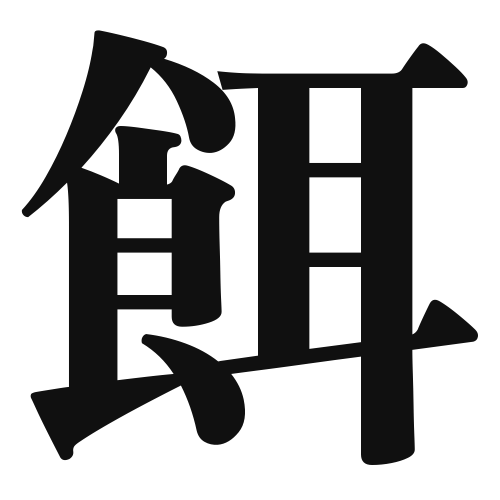1. Overview of Meaning
The kanji “餌” (pronounced “esa”) means “bait” or “feed,” typically referring to food given to animals, especially in the context of fishing or pet care.
2. Formation and Radicals
Formation of the Kanji: The kanji “餌” is a compound character that combines the radical for “food” (食) and the character “耳” (ear), which suggests the idea of something that is consumed or taken in.
Radical: The radical of “餌” is 食 (shoku), which relates to food and eating.
3. Examples of Usage
Common Words and Phrases:
- 餌を与える (esa o ataeru) – to give feed
- 魚の餌 (sakana no esa) – fish bait
Example Sentences in Daily Conversation:
- この餌は犬にとってとても美味しいです。 (Kono esa wa inu ni totte totemo oishii desu.) – This feed is very delicious for dogs.
- 釣りに行く前に餌を買わなければなりません。 (Tsuri ni iku mae ni esa o kawanakereba narimasen.) – I need to buy bait before going fishing.
4. Synonyms and Antonyms
Similar Kanji:
- 食べ物 (tabemono) – food; refers to food in general, while “餌” specifically refers to food for animals.
Antonyms:
- 飢え (ue) – hunger; represents the lack of food, which is the opposite of “餌.”
5. Cultural and Historical Background
Relation to Japanese Culture: In Japan, the concept of “餌” is significant in both agriculture and pet care, reflecting the importance of feeding animals properly.
Proverbs and Idioms:
- 餌を与えないと魚は釣れない (esa o ataenai to sakana wa tsurenai) – “You won’t catch fish if you don’t provide bait,” which emphasizes the importance of preparation and effort in achieving results.
